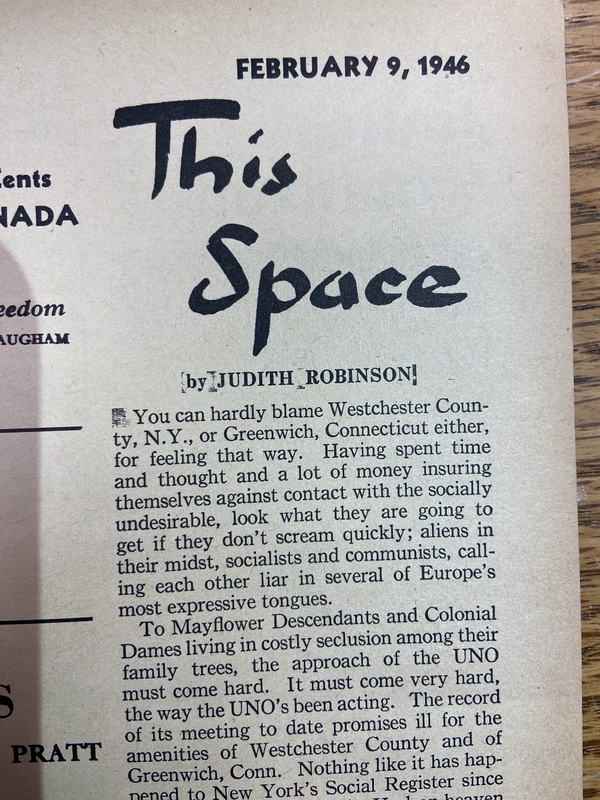Judith's "This Space" in NEWS
Judith Robinson (1897-1961) was a Canadian pioneer of women in journalism published in a variety of Canada’s most popular newspapers of the 1930s, 40s, and 50s. Noted for her cutting political commentary, Judith Robinson had a reputation as one of Parliament Hill’s most-feared women. Although her father was long-time The Toronto Evening Telegram editor John “Blackjack” Robinson, Judith was a self-taught journalist who landed her first job at The Globe and was writing a daily front-page column in 1934 in the midst of the Great Depression. From there, Judith often wrote about the plight of the unemployed and those hardest hit by the catastrophe. This pattern of focusing on politics and social justice in her columns continued, as she started her own weekly paper, NEWS, which ran throughout World War II, after resigning from The Globe due to disagreements over her coverage of the Mackenzie King government’s war preparations, which she argued were inadequate (2).
Robinson’s column in NEWS, called “This Space”, was a place where Judith was free to report as she wished on hot political topics, social injustices, and other pressing matters concerning the state of the country and her own community in Toronto. With a distinctly cutting, intelligent, and sardonic voice, Judith’s column was unique to her. Where historically, women journalist’s columns were seen as rarely directly interacting with politics (view this project for more on the state of women's writing in Robinson's time, as well as her contributions), Judith Robinson wrote often about some of the biggest events in Canadian mid-century political and social history, and was outwardly critical of the governments of the time. This Time provided a space within NEWS for Judith to report as she wished, producing work she felt had integrity and was honest to her own opinions on relevant events. Through This Space, Judith was able to report on what she wished and to do so candidly, whether or not the people on Parliament Hill approved. A series of articles she had written on the Gouzenko Affair were impactful enough to actually change Canadian policy on a federal scale. Continue to browse through the archive and the following pages for more information on how.

